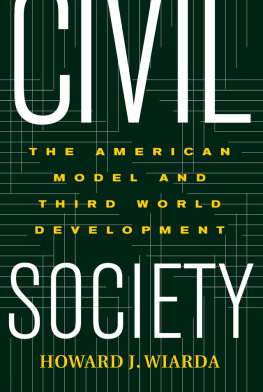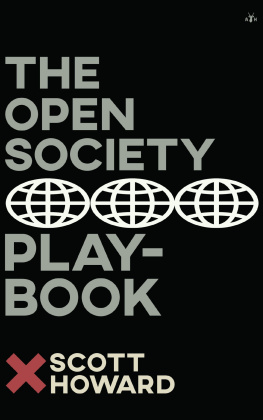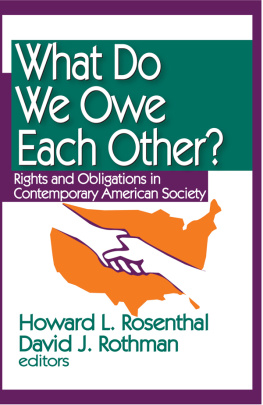ROUTLEDGE LIBRARY EDITIONS: CRIMINOLOGY
Volume 7
CRIME AND THE DEVELOPMENT OF MODERN SOCIETY
CRIME AND THE DEVELOPMENT OF MODERN SOCIETY
Patterns of Criminality in Nineteenth Century Germany and France
HOWARD ZEHR
First published in 1976 by Croom Helm and Rowman & Littlefield
This edition first published in 2019
by Routledge
2 Park Square, Milton Park, Abingdon, Oxon OX14 4RN
and by Routledge
52 Vanderbilt Avenue, New York, NY 10017
Routledge is an imprint of the Taylor & Francis Group, an informa business
1976 Howard Zehr
All rights reserved. No part of this book may be reprinted or reproduced or utilised in any form or by any electronic, mechanical, or other means, now known or hereafter invented, including photocopying and recording, or in any information storage or retrieval system, without permission in writing from the publishers.
Trademark notice: Product or corporate names may be trademarks or registered trademarks, and are used only for identification and explanation without intent to infringe.
British Library Cataloguing in Publication Data
A catalogue record for this book is available from the British Library
ISBN: 978-0-367-11213-4 (Set)
ISBN: 978-0-429-02697-3 (Set) (ebk)
ISBN: 978-0-367-13537-9 (Volume 7) (hbk)
ISBN: 978-0-429-02709-3 (Volume 7) (ebk)
Publishers Note
The publisher has gone to great lengths to ensure the quality of this reprint but points out that some imperfections in the original copies may be apparent.
Disclaimer
The publisher has made every effort to trace copyright holders and would welcome correspondence from those they have been unable to trace.
Crime and the Development of Modern Society
PATTERNS OF CRIMINALITY IN NINETEENTH CENTURY GERMANY AND FRANCE
HOWARD ZEHR
First published 1976
1976 Howard Zehr
Croom Helm Ltd, 210 St Johns Road, London SW11
ISBN 0-85664-235-5
First published in the United States 1976
by Rowman and Littlefield, Totowa, New Jersey
Library of Congress Cataloging in Publication Data
Zehr, Howard.
Crime and the development of modern society.
Bibliography: p. 177
1. Crime and criminals Germany History. 2. Crime and criminals France History. 3. Social history 19th century. I. Title.
HV6974.Z43 1976 364.943 76-19109
ISBN 0-87471-861-9
Printed in Great Britain by Biddles Ltd, Guildford, Surrey
In spite of the cold, impersonal facade of quantitative analysis, my interest in crime is by no means strictly academic. In fact, my concern with history generally is rather personal. This is not to say, of course, that I do not favour attempting objectivity; this we must all do, though I must admit some pessimism about the possibility of attaining that ideal. I mean, rather, that my reasons for studying history, and my reactions to history, are related directly to my concerns about myself and the world I live in. I believe that the reader has the right to such knowledge about an author, for even the most scientific of cliometricians cannot eradicate the effects of biases and predilections from his work, and this is especially true when dealing with a subject as emotionally laden as crime.
And I did begin this study with certain attitudes about crime. Some of them I am aware of; others, unfortunately, I am not. I do know that I began with a great deal of concern for the situation of the offender. My research, as well as contacts and friendships with offenders, has only strengthened that attitude. This may have affected the types of interpretations I was willing to consider. At the very least, it has led me to deal with crime as neutrally as I could; I have, for instance, tried to avoid the prejudicial word criminal, replacing it with more relativistic terms such as offender and delinquent in order to emphasise the role of society as well as of those whom society terms criminal. Similarly, I began with a number of assumptions and hypotheses about crime. Some of these, such as those discussed in the postscript, I have held to or modified slightly while others I have had to give up; some of my findings surprised me, other did not. Nevertheless, I think it is worth saying that I did not begin with a full-blown model to be tested. While I naturally have had to test certain hypotheses in the course of this study, my overall approach has approximated the one more widely accepted in the historical tradition, that of isolating what seemed to be patterns in the data and then finding reasonable explanations that fit. A case can be made for both types of approaches, of course, but the need for purely descriptive material on nineteenth-century criminality suggested the usefulness of the latter approach.
My deepest appreciation must go to Professor Stearns, who, first as my Ph.D. adviser, then as editor, spent hours carefully and patiently guiding me through this project. Similar feelings go to my family, who put up with me through this period. Unfortunately, it is impossible to acknowledge all of the other people and organisations which have given me assistance. Professors Seth M. Scheiner, Harry C. Bredemeier and Harold Poor read my manuscript at the dissertation stage and offered helpful suggestions. The Foreign Area Fellowship Program, the Southern Fellowships Fund, the Danforth Graduate Fellowship Program, and Talladega College all provided grants which made the research and writing possible. Rutgers University, Talladega College and Goshen College each made computer time available. Professor Rudolph M. Bell of Rutgers University as well as Professors Jerry Breecher and James L. Boettler of Talladega College answered many questions about my computer programs. I appreciate too the help provided by the personnel of numerous archives and libraries both in this country and in Europe, including especially the archives of the Prefecture of Police in Paris where I spent a great deal of time.
Needless to say, I bear sole responsibility for all statements and conclusions that follow.
In 1895 Emile Durkheim made the startling observation that crime is normal in a society, an integral part of all healthy societies. This view was novel then and it is still all-too-novel now, although recent concern about violence in America and elsewhere has brought an increasing awareness of the continuity of disorder in our own history.
The tardiness of this awakening is unfortunate. Delinquent behaviour must be considered normal to a society for reasons that by now are becoming obvious. As far as we know, no modern society exists which is crimeless. Moreover, numerous studies have demonstrated that most of us, regardless of our social standing, are involved in delinquent behaviour at some point in our lives. Later commentators have suggested other possibilities; some suggest for instance, that criminal behaviour is a form of social adaptation, representing an attempt to adjust to social norms, albeit in socially illegitimate ways. However, regardless of whether or not it is functional, the point is clear: crime, like sex and disease, is not an occasional aberration but a usual occurrence in human experience and as such deserves the attention of historians as well as that of criminologists. Although our knowledge is admittedly still incomplete, historical literature abounds with information about such everyday matters as birth, marriage and ploughing methods. Occasional outbreaks of collective violence riots, revolutions, mass protests have received even more attention. But surprisingly little is known about past patterns of criminal behaviour. It is high time that the more mundane forms of disorder received their due. For only through historical analysis can we develop a conceptual analysis of the relationship of crime to broader social processes such as industrialisation, and through this more than a superficial assessment even of present crime trends.













